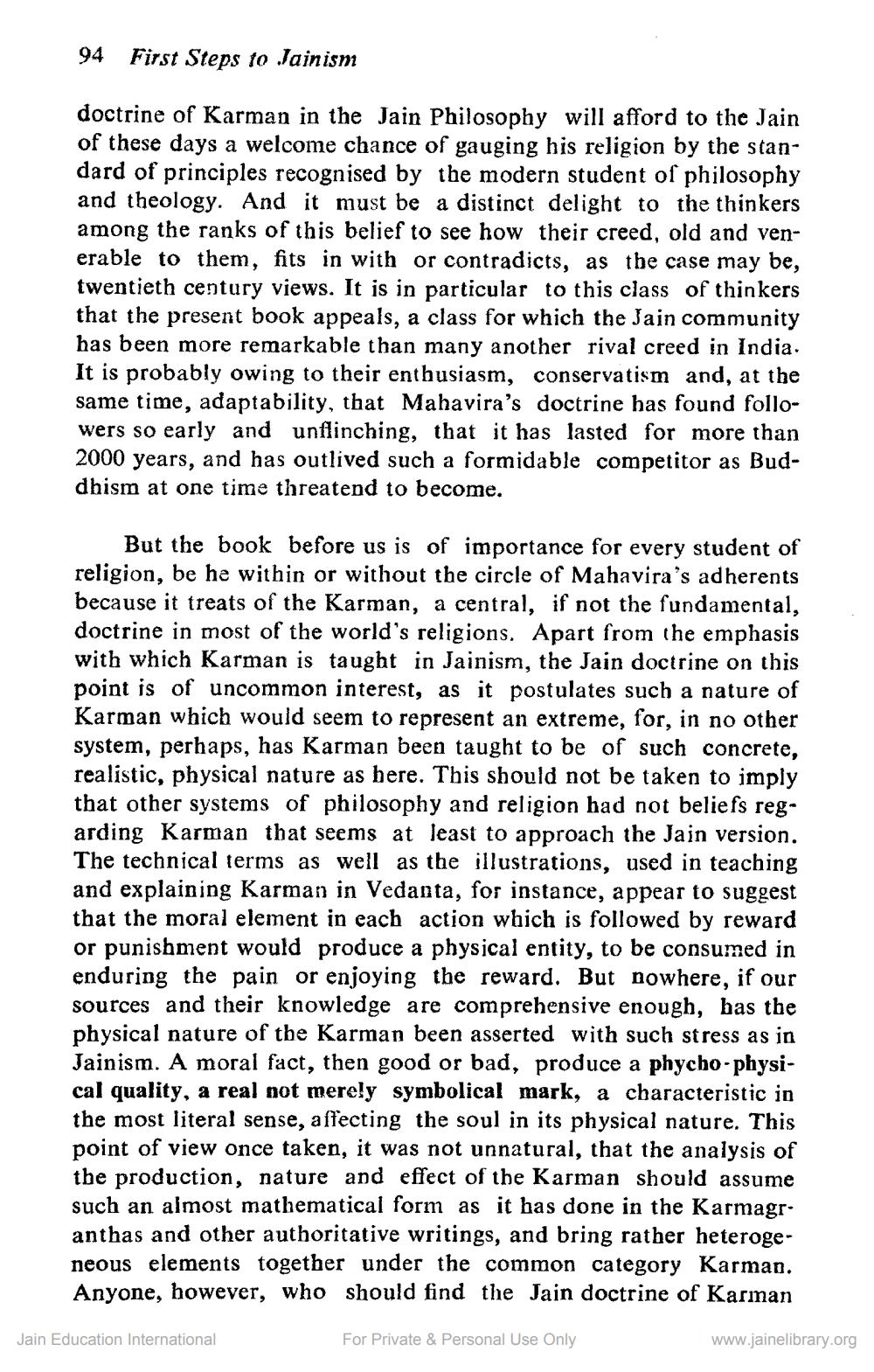________________
94 First Steps to Jainism
doctrine of Karman in the Jain Philosophy will afford to the Jain of these days a welcome chance of gauging his religion by the standard of principles recognised by the modern student of philosophy and theology. And it must be a distinct delight to the thinkers among the ranks of this belief to see how their creed, old and venerable to them, fits in with or contradicts, as the case may be, twentieth century views. It is in particular to this class of thinkers that the present book appeals, a class for which the Jain community has been more remarkable than many another rival creed in India. It is probably owing to their enthusiasm, conservatism and, at the same time, adaptability, that Mahavira's doctrine has found followers so early and unflinching, that it has lasted for more than 2000 years, and has outlived such a formidable competitor as Buddhism at one time threatend to become.
But the book before us is of importance for every student of religion, be he within or without the circle of Mahavira's adherents because it treats of the Karman, a central, if not the fundamental, doctrine in most of the world's religions. Apart from the emphasis with which Karman is taught in Jainism, the Jain doctrine on this point is of uncommon interest, as it postulates such a nature of Karman which would seem to represent an extreme, for, in no other system, perhaps, has Karman been taught to be of such concrete, realistic, physical nature as here. This should not be taken to imply that other systems of philosophy and religion had not beliefs regarding Karman that seems at least to approach the Jain version. The technical terms as well as the illustrations, used in teaching and explaining Karman in Vedanta, for instance, appear to suggest that the moral element in each action which is followed by reward or punishment would produce a physical entity, to be consumed in enduring the pain or enjoying the reward. But nowhere, if our sources and their knowledge are comprehensive enough, has the physical nature of the Karman been asserted with such stress as in Jainism. A moral fact, then good or bad, produce a phycho-physical quality, a real not merely symbolical mark, a characteristic in the most literal sense, affecting the soul in its physical nature. This point of view once taken, it was not unnatural, that the analysis of the production, nature and effect of the Karman should assume such an almost mathematical form as it has done in the Karmagranthas and other authoritative writings, and bring rather heterogeneous elements together under the common category Karman. Anyone, however, who should find the Jain doctrine of Karman
For Private & Personal Use Only
Jain Education International
www.jainelibrary.org




